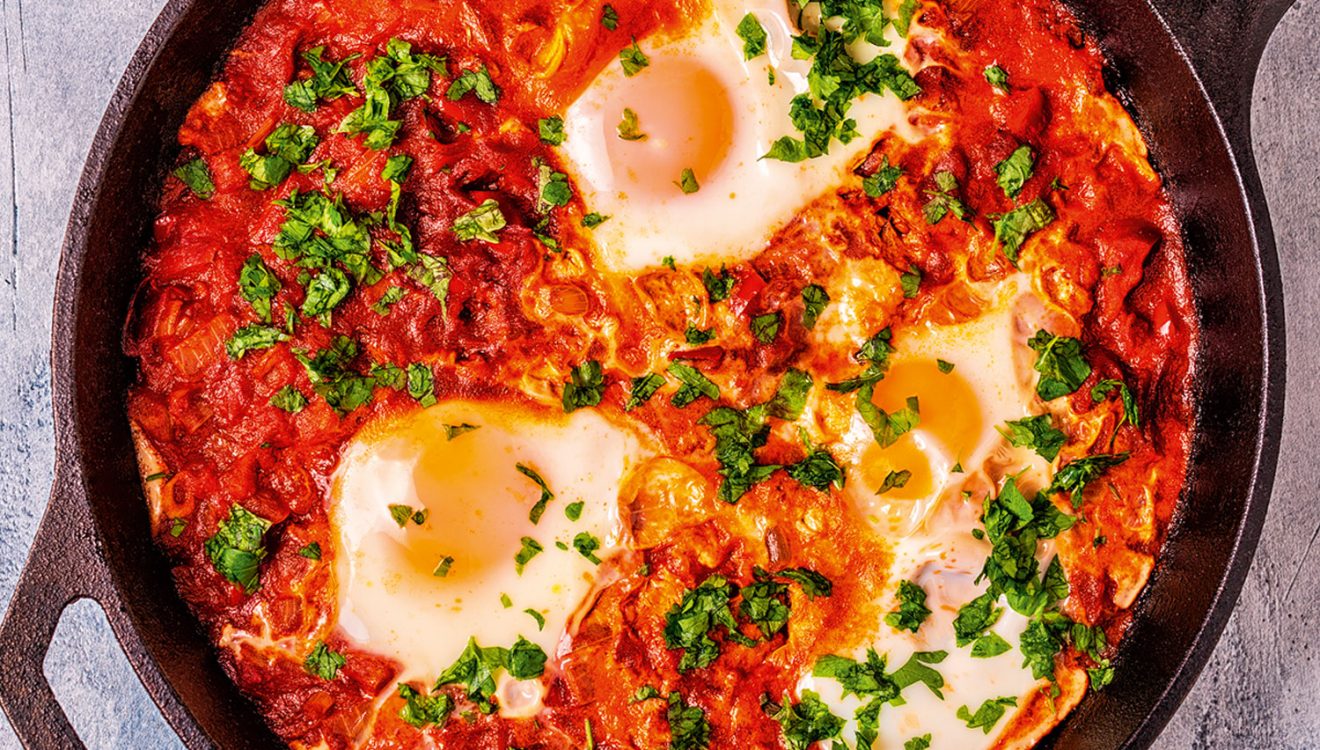Diabetes
Diabetics have high blood glucose levels and benefit from a diet that’s low in salt, saturated fat and sugar, and high in fibre and wholemeal carbs.
“35% of kosher meat revenue is for beef loin cut.”

This might include fruit pancakes, muffins or pastries with tea, coffee and juice. Pork is not kosher for a cooked breakfast, so try a veggie fry up instead.
Avoid blackberries and raspberries in a fruit salad, as they can’t be washed properly and are not strictly kosher – however, any other fruit is perfect on top of cereal, granola or porridge.

You could serve a smoked salmon bagel or shakshuka eggs baked in tomato sauce.
Dairy and meat must be certified and cannot mix in kosher meals (that includes serving dairy desserts after a meat course), but dairy can be served with fish, eggs and any plants. Make vegetarian sandwich fillings, and swap butter for olive or coconut oil. Try coconut cream or vegan milks, and use vegan cheeses and alternative meats in traditional recipes.

Roast chicken, meatballs and mashed potatoes, or vegetable lasagne make excellent suppers. Avoid cauliflower, asparagus or broccoli, as they cannot be washed to kosher standards, but you can cook up any other vegetarian dishes such as moussaka or potato kugels. Strict kosher may require separate utensils for meat and dairy, so use disposable cooking trays, plates and cutlery to be sure. Use kosher salt, and always serve kosher wine.

The Festival of Lights falls at the end of December 2022. Classic celebratory recipes include crispy potato latkes, slow-cooked beef brisket, or restorative matzo ball soup. Sweet treats include plaited challah bread, cinnamon apple cake and sufganiyot jam doughnuts to share with friends and family.
Sign in to save topics you love, and build your archive of events, menus and articles.